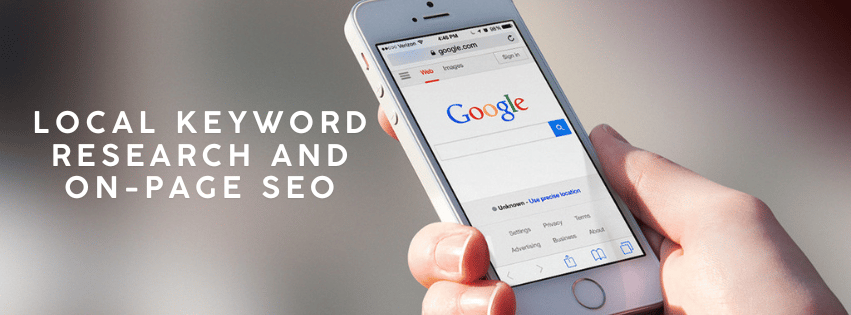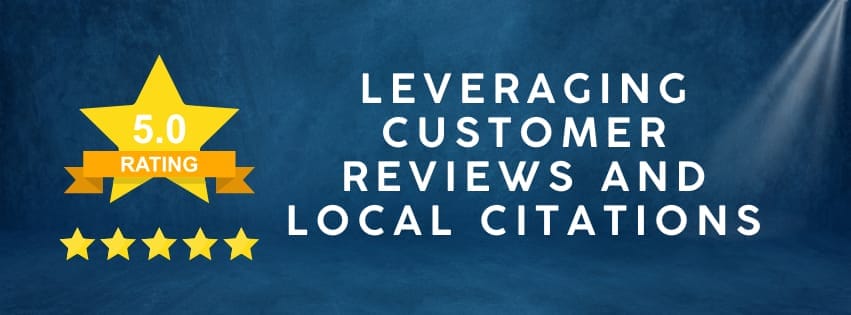Introduction
Success in local business doesn’t just happen; it’s planned and executed with precision. You have to be where your customers are looking, and that’s where local SEO comes into play. By honing your local SEO strategy, you make sure your business pops up when your community searches for the services you offer.
Local SEO might seem complicated, but it's actually quite manageable once you break it down. For real estate, insurance, and mortgage agents, or any local business, understanding and implementing these techniques can be the difference between staying hidden and standing out online. Local SEO ensures that when someone in your area searches for your services, your business appears front and center.
Imagine having a constant stream of local leads landing right on your business doorstep without doing anything more than tweaking your online presence. That's the power of mastering local SEO. This step-by-step guide will help you navigate the essentials of local SEO, from optimizing your Google My Business profile to conducting local keyword research and leveraging customer reviews. Let’s get started on making your business the go-to choice in your community!
Understanding the Basics of Local SEO
Local SEO focuses on making sure your business appears in local search results. When someone searches for a service you offer, like "real estate agent near me" or "best insurance firm in [your city]," you want your business to show up.
Search engines use several factors to determine which businesses to show. These include your location, the relevance of your content to the search term, and how well you’re optimizing local-specific keywords. Consistency is key; your business name, address, and phone number should be the same everywhere they appear online. This helps search engines understand your exact location and boosts your chances of appearing in local results.
Another important aspect of local SEO is creating content that speaks directly to local customers. Write blog posts, create videos, and share updates about community events you’re participating in. This will help improve your local relevance and engage people in your area. Understanding and implementing these basics will set a strong foundation for your local SEO efforts.

Step-by-Step Guide to Setting Up and Optimizing GMB
1. Claim Your Listing:
- First, go to Google My Business and create an account if you don’t already have one.
- Enter your business name and match it with the listing provided. If it's already there, claim it. If not, add your business manually.
2. Complete Your Profile:
- Fill in every detail about your business. Include your business name, address, phone number, website, and operating hours. Consistent information is crucial.
- Add a detailed business category that best describes your services.
- Provide a compelling business description. Use local keywords naturally to explain what you offer and why someone should choose you.
3. Add Photos and Videos:
- High-quality photos and videos of your business, team, and products can significantly enhance your profile. They make your business more appealing to potential customers.
- Update these media files regularly to keep your listing fresh and engaging.
4. Collect and Respond to Reviews:
- Encourage satisfied customers to leave positive reviews. Respond to all reviews, whether good or bad, to show that you care about customer feedback.
- Address concerns in a professional manner and thank customers for positive endorsements.
5. Keep Information Updated:
- Make sure to update your GMB profile with any changes. This includes holiday hours, special promotions, or any new services you offer.
- Regular updates signal to Google that your business is active, which can improve your local rankings.
Optimizing your Google My Business profile makes it easier for local customers to find your business and get all the information they need to choose you over competitors.

Tips for Effective Keyword Research and On-Page Optimization
1. Use Local Keywords:
- Incorporate local keywords into your website content. Keywords like “real estate agent in [your city]” or “best mortgage services in [your area]” are crucial.
- Use tools like Google Keyword Planner to find relevant local keywords that people are searching for.
2. Optimize Title Tags and Meta Descriptions:
- Ensure each page on your website has unique title tags and meta descriptions with your target local keywords.
- Keep title tags under 60 characters and meta descriptions under 160 characters to make them fully visible on search engines.
3. Include Local Info on Your Website:
- Add your business address, phone number, and local city name prominently on your website.
- Create a dedicated “Contact Us” page with a map and driving directions to your business.
4. Create Local Content:
- Write blog posts about local events, news, or community activities. This connects your business to the local area and helps you rank for local searches.
- Update your blog regularly to keep the content fresh and relevant.
5. Mobile Optimization:
- Ensure your website is mobile-friendly since many local searches are conducted on mobile devices.
- Test your site’s loading speed and overall performance on both desktop and mobile platforms.
By following these tips, you optimize your website for local searches, making it easier for people in your community to find your business.

Strategies for Gathering Reviews and Building Local Citations
1. Encourage Customer Reviews:
- Ask satisfied clients to leave reviews on your Google My Business profile, Yelp, and other local directories.
- Make it easy for customers to leave reviews by providing direct links and simple instructions.
2. Respond to Reviews:
- Engage with every review by thanking customers for positive feedback and addressing any negative comments promptly.
- Show appreciation for the time customers took to provide their feedback, which can foster loyalty and trust.
3. Build Local Citations:
- List your business on local directories such as Yelp, Yellow Pages, and niche-specific sites for real estate, insurance, or mortgages.
- Ensure consistency in your business name, address, and phone number across all listings.
4. Utilize Social Proof:
- Share positive reviews and testimonials on your website and social media channels. This shows potential customers that your business is reputable and trusted.
- Create a dedicated testimonials page on your website to highlight these reviews.
5. Monitor Your Online Reputation:
- Regularly check review sites and social media for new reviews.
- Use tools to alert you when new reviews are posted so you can respond promptly.
Leveraging customer reviews and building local citations enhance your online reputation and improve your local SEO rankings. This strategy helps build trust and attract more local customers to your business.
Conclusion
Local SEO is essential for real estate, insurance, mortgage agents, and small businesses looking to attract customers from their community. By understanding and implementing the basics of local SEO, optimizing your Google My Business profile, conducting effective keyword research, and leveraging customer reviews, you can significantly improve your online presence. These strategies ensure that when someone searches for services you offer, your business appears prominently in the local search results.
Take control of your local SEO efforts to draw in more local leads and grow your business. It’s not just about being visible online; it’s about making sure your business is the first choice for potential customers in your area. Ready to boost your local SEO? Contact Ask8 today to get expert guidance on search engine optimization for realtors and driving more local traffic to your business. Let’s work together to put your business on the local map!
